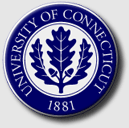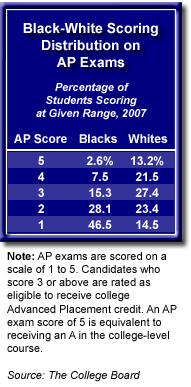Black Colleges Lag in Producing Peace Corps Volunteers
 The Peace Corps released its list of the colleges and universities that produce the most graduates serving as volunteers in the organization. The University of Washington leads all American educational institutions with 113 graduates currently serving in the Peace Corps. The University of Wisconsin, the University of Colorado, the University of North Carolina at Chapel Hill, and Michigan State University round out the top five educational institutions with the most Peace Corps volunteers. The Peace Corps released its list of the colleges and universities that produce the most graduates serving as volunteers in the organization. The University of Washington leads all American educational institutions with 113 graduates currently serving in the Peace Corps. The University of Wisconsin, the University of Colorado, the University of North Carolina at Chapel Hill, and Michigan State University round out the top five educational institutions with the most Peace Corps volunteers.
The Peace Corps has three different categories for schools: those with more than 15,000 undergraduates, those with 5,000 to 15,000 students, and schools with fewer than 5,000 students. There are no historically black colleges or universities among the top 25 producers of Peace Corps volunteers in any of the three categories.
Howard University, the historically black educational institution in Washington, D.C., currently has 11 graduates serving as Peace Corps volunteers. This is the most of any black college or university. All told, there are only 63 graduates of HBCUs who currently serve in the Peace Corps. There are 12 individual colleges and universities that have more alumni serving in the Peace Corps than all black colleges and universities combined.
New Endowed Chair to Honor Columbia University’s First Black Trustee
 Columbia University is establishing an endowed chair to honor M. Moran Weston, the first African American to serve on the university’s board of trustees. Dr. Weston was the rector of St. Philip’s Episcopal Church in Harlem, a professor of history at the State University of New York at Albany, and one of the founders of Carver Federal Savings Bank. Weston died in 2002. Columbia University is establishing an endowed chair to honor M. Moran Weston, the first African American to serve on the university’s board of trustees. Dr. Weston was the rector of St. Philip’s Episcopal Church in Harlem, a professor of history at the State University of New York at Albany, and one of the founders of Carver Federal Savings Bank. Weston died in 2002.
The chair will be endowed with a $3 million fund established by a joint effort between the university and the alumni association. The chair will be filled by a scholar in the arts and sciences whose work focuses on some aspect of the African-American experience.

UNIVERSITY OF CONNECTICUT

Various Administrative Positions, Architectural and Engineering Services
The Department of Architectural and Engineering Services (AES) at the University of
Connecticut invites applications for:
Senior Project Manager (Facilities Professional IV - UCP X) – Search # 2008346 Located in Storrs, CT, this position is responsible for the coordination and management of projects from inception to occupancy with primary emphasis on the design and acquisition phase of project delivery within the Design, Engineering and Technical Support unit.
Senior Project Manager (Facilities Professional IV- UCP X) – Search # 2008347 Located in Storrs, CT, as part of the Project & Program Management unit, this position is responsible for the coordination and management of projects in the construction phase.
Project Engineer Project & Program Management (Facilities Professional
III - UCP IX) – Search # 2008349 Located in Storrs, CT, this position is responsible for providing project management support to Architectural and Engineering Services’ Senior Project Managers in the construction phases of University construction projects.
On-Site Project Engineer (Facilities Professional III - UCP IX) – Search # 2008248 Located in Hartford, CT, this position is primarily responsible for the on-site management and coordination of a large multi-million dollar masonry/waterproofing restoration project. This is a 12-month end date position which may be renewed.
Facilities and Space Planner (UCP IX) – Search # 2008344 Located in Storrs, CT, this position will work in a unit responsible for design and construction of small and large-scale facility projects.
For more detailed information on these positions and application procedures, please visit our website: http://www.hr.uconn.edu/JOBS-NTP.HTML and for information on the department, the AES department website: www.aes.uconn.edu.
In keeping with our commitment to build a culturally diverse community, the University of Connecticut invites applications from women, people with disabilities, and members of minority groups.

New Research Effort at UCLA to Study Chronic Diseases That Disproportionately Affect Racial Minorities
 The department of family medicine at the University of California at Los Angeles has launched the Network for Multicultural Research on Health and Healthcare. The new program, funded by the Robert Wood Johnson Foundation, will study racial healthcare disparities, particularly concerning chronic diseases. The department of family medicine at the University of California at Los Angeles has launched the Network for Multicultural Research on Health and Healthcare. The new program, funded by the Robert Wood Johnson Foundation, will study racial healthcare disparities, particularly concerning chronic diseases.
Scientists from universities and medical centers across the United States will join the effort. The program will appoint five Healthcare Quality Scholars each year who will conduct research on such diseases as diabetes, cancer, hypertension, and other afflictions that disproportionately affect racial minorities.
Mercer University Enters Into Partnership With the African Union
 The African Union is an organization of 53 countries that have joined together to promote economic development. The organization has entered into its first formal partnership with an educational institution. The African Union is an organization of 53 countries that have joined together to promote economic development. The organization has entered into its first formal partnership with an educational institution.
The African Union, concerned about a brain drain from the African continent, has joined with Mercer University in Macon, Georgia, to establish a distance education program so that African students can remain at home to complete their education. The agreement also calls for a faculty exchange between Mercer and several African universities.
The partnership will also explore a scholarship program for African students to come to Mercer and for Mercer students to participate in internships with the African Union.
British College Wins Award for Diversity Efforts
 West Thames College in Isleworth, England, received the National Beacon Award from the Association of Colleges. The award is given for outstanding contributions toward equality and diversity in higher education. The college was the only educational institution in the United Kingdom to receive the award. West Thames College in Isleworth, England, received the National Beacon Award from the Association of Colleges. The award is given for outstanding contributions toward equality and diversity in higher education. The college was the only educational institution in the United Kingdom to receive the award.
The college was honored for its efforts to recruit and train black teachers and managers and for its programs to educate young black men.
Minority Business School Professors Triple in Past 14 Years
 When the PhD Project began in 1994 there were 294 minority professors at business schools in the United States. The organization encouraged minority students to pursue doctorates in business in order to increase the pool of potential business school faculty. In addition to young students, the PhD Project helped successful minority businesspeople return to school to pursue their doctorate and change their career. When the PhD Project began in 1994 there were 294 minority professors at business schools in the United States. The organization encouraged minority students to pursue doctorates in business in order to increase the pool of potential business school faculty. In addition to young students, the PhD Project helped successful minority businesspeople return to school to pursue their doctorate and change their career.
Now after 14 years there are 882 minority business school professors, triple the number from 1994. The latest minority professor is Belinda Shipps, who joined the faculty at North Carolina A&T State University after completing her doctoral dissertation at the University of Wisconsin. Her dissertation was titled “Information Technology Staffing Strategies: On the Road to Agility.”
Due to her historic appointment, the PhD Project has given Professor Shipps the title, “Dr. Triple.”
New Magazine on the African-American Experience at Ohio State
 Herbert Wilborn III, coordinator of academic studies in the Office of Minority Affairs at Ohio State University, announced the launch of a new magazine entitled OSUnity. The new magazine is designed to “promote and highlight the African-American community” at the university. Wilborn believes the magazine will also be a helpful tool for admissions officers to use to recruit black students to Ohio State. Herbert Wilborn III, coordinator of academic studies in the Office of Minority Affairs at Ohio State University, announced the launch of a new magazine entitled OSUnity. The new magazine is designed to “promote and highlight the African-American community” at the university. Wilborn believes the magazine will also be a helpful tool for admissions officers to use to recruit black students to Ohio State.
About 40 students are involved in the planning of the new magazine. It is hoped that the first issue will be ready when students return to campus this fall.
Several High-Ranking Educational Institutions Boost Financial Aid for Low-Income Students
Joining many other high-ranking colleges and universities, Carleton College in Northfield, Minnesota, Columbia University in New York City, Massachusetts Institute of Technology, and Vassar College in Poughkeepsie, New York, have made tuition more affordable for students from low-income families.
 Carleton College, where blacks make up about 6 percent of the 2,000 students, has established its Access Scholarship Program, which gives scholarship grants to students from families with incomes below $75,000. The program is expected to reduce the loan debt of Carleton’s neediest students by 70 percent. The new scholarship grants are expected to add $1 million to the college’s annual financial aid budget. Carleton College, where blacks make up about 6 percent of the 2,000 students, has established its Access Scholarship Program, which gives scholarship grants to students from families with incomes below $75,000. The program is expected to reduce the loan debt of Carleton’s neediest students by 70 percent. The new scholarship grants are expected to add $1 million to the college’s annual financial aid budget.
 Columbia University announced that students from families with incomes below $60,000 would no longer be required to make a financial contribution toward tuition or room and board expenses. In addition, Columbia is eliminating loans for all students on financial aid and replacing loans with scholarship grants. Columbia University announced that students from families with incomes below $60,000 would no longer be required to make a financial contribution toward tuition or room and board expenses. In addition, Columbia is eliminating loans for all students on financial aid and replacing loans with scholarship grants.
 At MIT, the new financial aid package waives tuition charges for students from families with incomes below $75,000. For these students, scholarship grants will replace loans for costs other than tuition. These students will also see a reduction in the number of hours they have to work under the university’s work/study program. About 30 percent of all MIT undergraduates will qualify for the free tuition plan. At MIT, the new financial aid package waives tuition charges for students from families with incomes below $75,000. For these students, scholarship grants will replace loans for costs other than tuition. These students will also see a reduction in the number of hours they have to work under the university’s work/study program. About 30 percent of all MIT undergraduates will qualify for the free tuition plan.
MIT estimates that the new program will add $7 million to its $67 million financial aid budget.
 Vassar College in Poughkeepsie, New York, has eliminated loans from financial aid packages for students from families with incomes below $60,000. These students will have their loans replaced with scholarship grants. Vassar College in Poughkeepsie, New York, has eliminated loans from financial aid packages for students from families with incomes below $60,000. These students will have their loans replaced with scholarship grants.
Currently the average loan component of financial aid packages for students from families with incomes under $60,000 at Vassar is nearly $3,000. Vassar estimates that its new plan will add $1 million to its financial aid expenditures.

THE OHIO STATE UNIVERSITY

Senior Director of Development
The Senior Director of Development provides leadership, direction and coordination of fundraising and marketing strategies for the College of Engineering's development and communications teams with special emphasis on the Department of Chemical and Biomolecular Engineering and its $20+ million campaign and the Department of Materials Science and Engineering by coordinating the college's overall campaign planning and implementation. Manages all development staff assigned to the College of Engineering and its Knowlton School of Architecture and manages the Engineering Communications and Alumni Relations staff. In these roles, the Sr Director develops and implements long and short term plans to market and secure major gifts from alumni, friends, volunteers, corporations, foundations and other entities in support of the college's and university's mission, objectives and priorities as set by the Dean. This position reports directly to the assistant vice president for university development and to the dean of the College of Engineering and will be a member of the Dean's Executive Committee.
Requirements: Bachelor's Degree or an equivalent combination of education and experience. Extensive fundraising experience with a proven record of success in identifying, cultivating, soliciting and stewarding major gifts from individuals, corporations or foundations. Excellent oral, written and interpersonal skills. Proven record of management of staff and/or projects that include goal setting/performance management, leadership development and strategic planning.
Desired: Master's Degree or an equivalent combination of education and experience. Capital campaign experience.
For a complete position description and application instructions, please go to www.jobsatosu.com and search by requisition number 337687. To ensure consideration, applications must be received by April 13, 2008.
To build a diverse workforce Ohio State encourages applications from individuals with disabilities, minorities, veterans and women. EEO/AA employer.

Awards
 • Wilmer Cooksey, who recently retired as manager of the General Motors assembly plant in Bowling Green, Kentucky, received the Lifetime Service Award from the Council of Engineering Deans of the Historically Black Colleges and Universities. The award recognizes Cooksey’s “longtime dedication to education for African Americans.” • Wilmer Cooksey, who recently retired as manager of the General Motors assembly plant in Bowling Green, Kentucky, received the Lifetime Service Award from the Council of Engineering Deans of the Historically Black Colleges and Universities. The award recognizes Cooksey’s “longtime dedication to education for African Americans.”
Before becoming a General Motors executive, Cooksey was a professor of industrial engineering at what is now Kettering University. He continues to serve on the board of the Tennessee State University Foundation.
Cooksey is an electrical engineering graduate of Tennessee State University and holds a master’s degree in industrial engineering from the University of Toledo.
• Isaiah Hugley, the city manager of Columbus, Georgia, received the Dr. John Townsend Achievement Award from Columbus State University. Townsend was the first black student at the university.
• Irving Smith, a decorated war hero who is now serving as a professor of sociology and director of minority admissions at the United States Military Academy, received the Man of the Year Award from the Beta Alpha Alpha chapter of the Omega Psi Phi Fraternity.
|
EEOC Rules in Favor of MIT in Racial Discrimination Complaint Filed by Former Engineering Faculty Member, James L. Sherley
 The U.S. Equal Employment Opportunity Commission has rejected a racial discrimination complaint filed by former MIT faculty member James L. Sherley. The U.S. Equal Employment Opportunity Commission has rejected a racial discrimination complaint filed by former MIT faculty member James L. Sherley.
In January 2005 Sherley, an associate professor of biological engineering at the Massachusetts Institute of Technology, was denied tenure. Sherley claimed that he was denied adequate laboratory resources and that the racism of his colleagues was a factor in the denial of tenure.
In early 2007 Sherley went on a 12-day hunger strike. MIT closed Professor Sherley’s lab last summer when his employment contract with the university expired. Dr. Sherley filed his complaint with the EEOC this past September.
In the EEOC response to Professor Sherley, the commission said that any harm that was done happened when tenure was denied in early 2005, not when Sherley’s employment was terminated, and therefore the claim was filed too late for the commission to act.
But the commissioners also stated that had the commission acted on the merits of the case, it would have ruled for the university. The EEOC said that MIT’s reasons for denying Sherley tenure were valid and nondiscriminatory.
Under the law Shirley has until next week to decide whether to take the issue to federal court.
  |
 “Civil rights belongs to all of us, not just black people.” “Civil rights belongs to all of us, not just black people.”
— Ward Connerly, president of the American Civil Rights Institute, announcing that he had gathered enough signatures to place an initiative on the ballot in Colorado this November which, if enacted, would ban race-sensitive admissions or race-based scholarships at public universities in the state
|
Whites Twice as Likely as Blacks to Receive Qualifying Grades on Advanced Placement Tests
In 2007, of the 1,198,053 AP exams taken by white students, a qualifying grade of 3 or above was achieved on 62 percent of the tests. This is equivalent to receiving a grade of C or above in a college-level course. Blacks received qualifying grades of 3 or above on only 25.4 percent of the AP exams that they took. Thus, whites were more than twice as likely as blacks to receive a qualifying grade. Over the past three years, as the number of black test takers increased, the percentage of all black test takers receiving qualifying grades dropped from 29.2 percent to 25.4 percent.
At the very highest level of AP test scores, the black-white scoring gap is even greater. Some 13.2 percent of white test takers received a score of 5, equivalent to a college grade of A. Only 2.6 percent of black test takers received a score of 5. Blacks took 5.8 percent of all AP tests in 2007 but they made up only 2.6 percent of all students who became eligible for college credit and only 1.2 percent of all students with the highest score of 5.
Nationwide, the mean AP score for white students was 2.95; for blacks it was 1.91. This means that the average black score is a full letter grade below the average white score. This gap has widened slightly in the last several years.

The Higher Education Credentials of the First Black General in the Arkansas National Guard
 Recently, William J. Johnson became the first African-American general in the 203-year history of the Arkansas National Guard. Johnson, a 30-year veteran of the guard, has a two-year associate’s degree from Vincennes University, a bachelor’s degree from Philander Smith College, and a master’s degree from the Army War College. Recently, William J. Johnson became the first African-American general in the 203-year history of the Arkansas National Guard. Johnson, a 30-year veteran of the guard, has a two-year associate’s degree from Vincennes University, a bachelor’s degree from Philander Smith College, and a master’s degree from the Army War College.
When Johnson was 7 years old and growing up in Arkansas, the state’s all-white national guard was called in by Governor Orval Faubus to prevent black students from entering Little Rock Central High School. When General Johnson was asked about the guard’s role in the Little Rock crisis, he responded, “We take an oath to support the constitution of the state of Arkansas against all enemies, foreign and domestic. They did that then, we do it now.”

MORGRIDGE INSTITUTE FOR RESEARCH

Donor and Prospect Research Coordinator
ABOUT THE POSITION
The Donor and Prospect Research Coordinator will serve as part of the primary fundraising unit for the Morgridge Institute for Research (MIR). The Donor and Prospect Research Coordinator will position MIR with existing and prospective donors through extensive research to identify potential donors. This position will conduct research to identify major gift prospects; maintain a steady pipeline of potential donors; and develop and maintain information tracking systems. Further, this position will assist with major gift prospect strategy development and interact with development colleagues to maintain an awareness of gift officers and the division’s needs/activities.
EDUCATION AND EXPERIENCE
- Bachelor’s degree in library sciences, business research or related information research
- Experience utilizing applications and internet search/access capabilities to identify and research prospects
- Experience within a research institute or higher education environment preferred
KNOWLEDGE, SKILLS AND ABILITIES
- Familiarity with fundraising activities, participating in prospect management, tracking processes and staying informed of trends in the field
- Excellent verbal and written communication skills
- Ability to demonstrate high level of creativity and solve problems effectively
- High energy and individual initiative combined with team attitude
- Excellent analytical skills and ability to demonstrate high level of creativity and solve problems effectively
- Strong organizational and information management skills
- Ability to analyze and interpret complex financial disclosure documents for the purposes of wealth assessment (SEC filings, real property files, financial and legal disclosures, etc.)
- Ability to maintain high level of confidentiality
- Loyalty to the organization and its mission
- Unquestioned integrity
Application Process
To express interest in the Morgridge Institute for Research Donor and Prospect Research Coordinator position please submit a resume and cover letter to the below address by Monday, March 31, 2008. Further information about the organization can be found at www.morgridgeinstitute.org.
The Morgridge Institute for Research
Donor and Prospect Research Coordinator Search
PO Box 7365
Madison, WI 53707
careers@morgridgeresearch.org
The Morgridge Institute for Research is an equal opportunity employer.

Twenty-Seven Candidates Apply for the Position of Chancellor of Southern University
 There are 27 individuals who have applied for the position of chancellor at Southern University, the historically black educational institution in Baton Rouge. Among the applicants are: There are 27 individuals who have applied for the position of chancellor at Southern University, the historically black educational institution in Baton Rouge. Among the applicants are:
• Ray Belton, chancellor of Southern University at Shreveport;
• James Llorens, dean of graduate studies at Southern University;
• Lester Newman, former president of Mississippi Valley State University;
• Christopher Jeffries, provost at Talladega College;
• James Wingate, former president of LeMoyne-Owen College; and
• Rita Teal, vice president for academic affairs at South Carolina State University.
 Also included among the applicants is current interim chancellor of Southern University Margaret Ambrose. She has led the university since last May, and several board members at Southern University have announced that they prefer she be given the job permanently. Also included among the applicants is current interim chancellor of Southern University Margaret Ambrose. She has led the university since last May, and several board members at Southern University have announced that they prefer she be given the job permanently.
One drawback to Ambrose’s chance for selection is the fact that among the 27 applicants, she is the only one without a doctorate.
The university’s board hopes to name the new chancellor later this spring.
  |
1.4% Percentage of all white children in the United States who are being raised by their grandparents.
5.4% Percentage of all black children in the United States who are being raised by the their grandparents.
source: U.S. Census Bureau
|
The New Chancellor of Fayetteville State University
 James A. Anderson was named the eleventh chancellor of Fayetteville State University in North Carolina. He was a professor of psychology at the University of Albany where he previously served as vice president and vice provost. James A. Anderson was named the eleventh chancellor of Fayetteville State University in North Carolina. He was a professor of psychology at the University of Albany where he previously served as vice president and vice provost.
A native of Washington, D.C., Dr. Anderson is a graduate of Villanova University in Pennsylvania. He holds a Ph.D. in psychology from Cornell University.
Anderson has served on the faculty at Xavier University in New Orleans and Indiana University of Pennsylvania. He has held vice provost positions at North Carolina State University and Texas A&M University. He currently is a member of the board of trustees at Villanova University.
In Memoriam
Rachel Diggs Wilkinson (1913-2008)
Rachel D. Wilkinson, whose career as an educator spanned five decades, died recently in Winston-Salem, North Carolina. She was 94 years old.
In 1933 Wilkinson graduated from what is now Winston-Salem State University. Denied admission to the teachers college at the University of North Carolina at Chapel Hill because of her race, she instead enrolled at Teachers College at Columbia University, earning her master’s degree there in 1937.
She then returned to North Carolina to teach in the segregated public schools. In 1940 she was named dean of women at Winston-Salem State. During her tenure there she studied for her doctorate in higher education at New York University, earning her degree in 1952. After securing her doctorate, she joined the faculty of the City University of New York until her retirement in 1972.
Rachel Bassette Noel (1918-2008)
Longtime educator and political pioneer Rachel Bassette Noel died late last month in Colorado. She was 90 years old.
Born into a prominent black family in Hampton, Virginia, she was a graduate of the Hampton Institute and earned a master’s degree in sociology at Fisk University.
After her marriage in 1949, Noel and her husband settled in Colorado. In 1965 she was elected to the Denver school board, one of the first African-American elected officials in Colorado history. She later served on the faculty of Metropolitan State College and was a member of the board of regents of the University of Colorado. In 2003 Noel had a middle school in Denver named in her honor.
Appointments
 • Ronald D. Blanton, professor of electrical and computer engineering at Carnegie Mellon University in Pittsburgh, was named director of the Center for Silicon System Implementation. The center conducts research on chip design and manufacturing. It is funded by the National Science Foundation, the Defense Department, the Semiconductor Research Corporation, and other industry groups. • Ronald D. Blanton, professor of electrical and computer engineering at Carnegie Mellon University in Pittsburgh, was named director of the Center for Silicon System Implementation. The center conducts research on chip design and manufacturing. It is funded by the National Science Foundation, the Defense Department, the Semiconductor Research Corporation, and other industry groups.
Professor Blanton is a graduate of Calvin College. He holds a master’s degree in electrical engineering from the University of Arizona and a Ph.D. in computer science and engineering from the University of Michigan.
 • Elizabeth Thornton was appointed chief diversity officer at Babson College in Wellesley, Massachusetts. Thornton, an adjunct professor at Babson, is founder and CEO of a training and consulting firm called Entrepreneurship Advantage Inc. • Elizabeth Thornton was appointed chief diversity officer at Babson College in Wellesley, Massachusetts. Thornton, an adjunct professor at Babson, is founder and CEO of a training and consulting firm called Entrepreneurship Advantage Inc.
Thornton is a graduate of Georgetown University and holds an MBA from the Stern School of Business at New York University.
 • Catherine Meeks, director of the Lane Center for Community Engagement and Service at Wesleyan College in Macon, Georgia, announced that she will be “graduating from higher education” at the end of the academic year. • Catherine Meeks, director of the Lane Center for Community Engagement and Service at Wesleyan College in Macon, Georgia, announced that she will be “graduating from higher education” at the end of the academic year.
Professor Meeks is a graduate of Pepperdine University. She holds a master’s of social work degree from Atlanta University and a Ph.D. in women’s and African-American studies from Emory University.
 • Gretchel Hathaway Tyson was promoted to senior director for campus diversity and affirmative action at Union College in Schenectady, New York. She has served as director of community outreach. • Gretchel Hathaway Tyson was promoted to senior director for campus diversity and affirmative action at Union College in Schenectady, New York. She has served as director of community outreach.
Dr. Tyson is a graduate of Manhattanville College. She holds a master’s degree from Yeshiva University and a doctorate from the University of Pittsburgh.
Grants
• Three historically black colleges and universities are among 11 educational institutions that will receive multiyear federal government grants of up to $2 million to establish centers and conduct research on homeland security missions.
Jackson State University, the historically black educational institution in Mississippi, will team up with the University of North Carolina at Chapel Hill to establish the Center of Excellence for Natural Disasters, Coast Infrastructure, and Emergency Management.
Texas Southern University, the historically black educational institution in Houston, and Tougaloo College, a black college in Mississippi, will join the University of Connecticut in establishing the Center of Excellence for Transportation Security.
• The Siemens Foundation has made a five-year, $1 million grant to provide scholarships for students at historically black colleges and universities who are seeking careers as science and mathematics teachers. The scholarships will be given out by the Thurgood Marshall College Fund and the United Negro College Fund.
|
 .
.